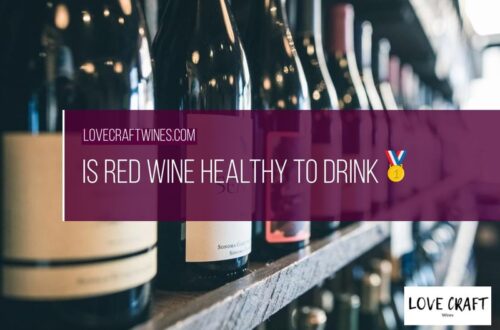Are you a vegan who enjoys a good glass of wine? You may be wondering if wine is a suitable beverage for those following a plant-based lifestyle. The answer is yes, but it is important to understand the wine production process and the potential use of animal products in the process.
Wine is made from fermented grapes, and some varieties may use other fruits or grains. It is a complex process that involves several stages, including harvesting, crushing, fermentation, aging, and bottling. However, during these stages, animal products may be used as fining agents to clarify the wine and improve its taste and appearance.
As a vegan, it is crucial to know which wine brands are vegan-friendly and to make informed decisions about the wine you consume. In this article, we will explore the wine production process, the use of animal products, and the different vegan-friendly wine brands available. We will also discuss the potential health benefits of wine for vegans and how to make informed decisions as a vegan wine consumer.
Table of Contents
Wine Production Process
You’ll see grapes being harvested and crushed before being fermented with yeast to create a flavorful and aromatic beverage loved by many. However, not all wines are vegan-friendly.
Animal products such as egg whites, gelatin, and fish bladder (isinglass) are commonly used in the winemaking process to filter out impurities and clarify the wine. Alternative winemaking methods, such as using clay or charcoal filters, are available for those who want to avoid animal products in their wine. These methods may result in a different taste or texture, but they’re just as effective in clarifying the wine.
Aside from animal products, the production of wine also has an environmental impact. The use of pesticides, herbicides, and fertilizers in conventional vineyards can harm the soil and surrounding ecosystems.
Sustainable and organic farming practices are becoming more prevalent in the wine industry, with some wineries even using biodynamic methods to promote biodiversity and soil health. As a consumer, you can support these environmentally-conscious winemakers by choosing wines that are certified organic, biodynamic, or sustainable.
Animal Products Used in Wine Production
If you’re thinking that all alcohol is fair game for vegans, think again – animal products can be used in the production of some wines. Specifically, the use of fining agents, which help to clarify wine by removing impurities, can often involve animal byproducts such as gelatin, egg whites, and fish bladder.
This may come as a surprise to many vegans, who may assume that wine is simply fermented grape juice. However, it’s important to note that not all wines use animal-based fining agents, and there are alternatives available for those who want to stick to a vegan lifestyle. Fortunately, there are several alternatives to animal-based fining agents that are used in vegan-friendly wines.
These include bentonite clay, activated charcoal, and pea protein. Additionally, some winemakers choose to forgo the fining process altogether, instead relying on natural settling and filtration methods to clarify their wines.
If you’re looking for a vegan-friendly wine, it’s important to do your research and look for brands that are transparent about their production process and ingredients. In the next section, we’ll explore some popular vegan-friendly wine brands that you may want to try.
Vegan-Friendly Wine Brands
For those seeking a plant-based lifestyle, there are various vegan-friendly wine brands available that use alternatives to animal-based fining agents in their production process. These brands prioritize using organic options and sustainable practices to ensure that their wines are not only vegan-friendly but also environmentally conscious.
Here are some vegan-friendly wine brands to consider:
- Frey Vineyards: This California-based winery has been producing vegan, organic, and biodynamic wines since the 1980s. They use plant-based fining agents like bentonite clay and pea protein to clarify their wines.
- The Vegan Vine: This brand specializes in vegan-friendly wines and uses only plant-based fining agents like clay and charcoal. They also prioritize sustainability by using eco-friendly packaging.
- Bonterra Vineyards: This winery uses organic and biodynamic farming practices and plant-based fining agents to produce their vegan-friendly wines. They also use solar power and recycled materials in their production process.
- Our Daily Wines: This brand offers a range of vegan-friendly wines that are made using plant-based fining agents like pea protein and bentonite clay. They also use sustainable practices like reducing water usage and using renewable energy.
Now that you know some vegan-friendly wine brands to try, let’s explore the potential health benefits of wine for vegans.
Potential Health Benefits of Wine for Vegans
Sipping on a glass of red or white can offer some potential health benefits that may complement a plant-based lifestyle.
While wine is not a substitute for a healthy diet, it does contain some nutritional value that can benefit vegans.
Red wine, in particular, is known for its antioxidants, such as resveratrol, which can help protect against heart disease and certain types of cancer.
Additionally, wine may help lower cholesterol levels and improve blood sugar control. However, it’s important to note that excessive drinking can lead to health risks, including liver damage, alcohol addiction, and increased risk of certain cancers.
As a vegan, it’s important to make informed decisions about your alcohol consumption and to drink responsibly.
When selecting a wine, choose a vegan-friendly brand that doesn’t use animal products in the production process. By doing so, you can enjoy the potential health benefits of wine without compromising your values as a vegan.
Making Informed Decisions as a Vegan Wine Consumer
As a conscious vegan, it’s crucial to make informed decisions about the brands of wine you choose, ensuring they align with your values and beliefs.
When selecting a wine, there are ethical considerations to keep in mind, such as how the grapes were grown and harvested. Look for wines that are certified organic, biodynamic, or sustainable, as these methods prioritize the health of the soil and the environment.
Additionally, some wineries may use animal-derived products in the production process, such as egg whites or fish bladders for clarification. To avoid these, look for wines that are labeled as vegan or use alternative methods for clarification.
Another factor to consider when choosing a vegan wine is the environmental impact. The wine industry can be resource-intensive, with high water usage and carbon emissions. To minimize your impact, look for wineries that prioritize sustainability through practices such as using renewable energy, reducing water usage, and minimizing waste.
Additionally, consider purchasing wine from local wineries to reduce the carbon footprint associated with transportation. By making informed decisions about the brands of wine you choose, you can enjoy a glass while staying true to your vegan values and minimizing your impact on the environment.
Frequently Asked Questions
How does the taste of vegan wine differ from non-vegan wine?
When it comes to taste comparison between vegan and non-vegan wine, there are some subtle differences that can be noticed by wine enthusiasts.
For example, vegan wines tend to have a brighter and fresher taste due to the absence of animal products in the production process.
Non-vegan wines may sometimes have a slightly heavier or richer taste due to the use of animal-derived fining agents, such as egg whites or gelatin.
It’s worth noting that these differences are not always noticeable and depend on the specific wine.
Overall, the production process of vegan wine is more sustainable and ethical, which can be an added bonus for those who prioritize these values.
Can vegans consume wine that has been aged in barrels made from animal products?
To ensure that the wine you consume as a vegan is ethical, you need to look at the wine barrel alternatives that the winery uses.
Traditional wine barrels are made from animal products such as gelatin, fish bladders, and egg whites, which are used for fining and clarification purposes.
However, many wineries are now using vegan-friendly alternatives such as clay, stainless steel, or oak barrels that are not coated with animal-derived substances.
To ensure that the wine you purchase is vegan-friendly, look for a vegan wine certification on the label or website of the winery. This certification guarantees that no animal products were used in the winemaking process.
Are there any ethical concerns with purchasing wine from non-vegan wineries?
Like a grapevine that’s been tended to with care and precision, you want to ensure that the products you consume align with your values.
When it comes to purchasing wine from non-vegan wineries, there are ethical concerns to consider. These wineries may use animal products in their winemaking process, such as gelatin or fish bladders, which can be harmful to animals and the environment.
It’s important to do your research and look for wineries that use vegan-friendly methods and ingredients. This way, you can enjoy a glass of wine without compromising your ethical beliefs.
Is there a difference in the environmental impact of vegan wine compared to non-vegan wine?
When it comes to the environmental impact of wine, sustainable practices are crucial.
Vegan wine and non-vegan wine may not differ significantly in terms of their environmental impact, but wineries that prioritize sustainable practices can make a significant difference.
Sustainable wineries prioritize organic farming, minimal use of pesticides, and water conservation. They also use renewable energy sources, such as solar panels and wind turbines, to power their operations.
By supporting sustainable wineries, you can help reduce the environmental impact of wine production.
Can vegans consume wine made with organic grapes that have been fertilized with animal products?
To ensure that wine made with organic grapes is suitable for vegans, it’s important to consider the source of the fertilizer used in the cultivation process. Organic certification forbids the use of synthetic fertilizers, but animal-derived fertilizers are still permitted.
Fortunately, there are alternative fertilizer options available that do not rely on animal products, such as composted plant matter and green manure. By using these alternatives, winemakers can produce organic wine that is both environmentally friendly and vegan-friendly.
It’s important to note that not all organic wines are vegan, as some winemakers may still use animal products in the production process. However, by seeking out wineries that prioritize vegan-friendly methods, you can enjoy organic wine with a clear conscience.
Conclusion
So, can you enjoy wine as a vegan? Absolutely! While some wines may use animal products in their production process, there are plenty of vegan-friendly options available. By understanding how wine is made and researching the brands you choose to purchase, you can confidently enjoy a glass of wine without compromising your vegan lifestyle.
One potential objection to vegan wine consumption is the concern over potential health risks associated with alcohol consumption. However, it’s important to note that moderate wine consumption has been linked to potential health benefits, including improved heart health and reduced risk of certain diseases.
Of course, it’s always important to consume alcohol in moderation and make informed decisions based on your personal health needs and preferences.
In conclusion, as a vegan, you can still enjoy a glass of wine without sacrificing your beliefs. By educating yourself on the production process and choosing vegan-friendly brands, you can indulge in the occasional glass of wine and potentially reap some health benefits along the way.
So go ahead and raise a glass to a vegan-friendly and healthy lifestyle!







